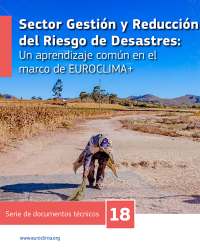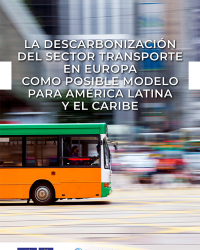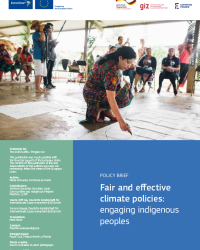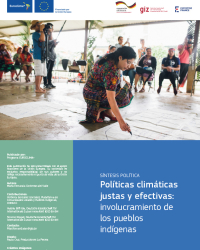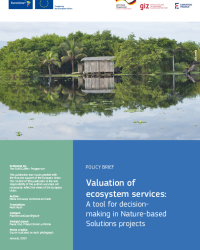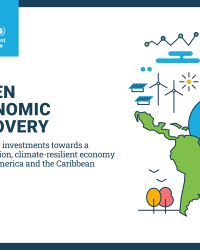Búsqueda por categoría
Más descargados
| Guía Cambio Climático y agricultura familiar con lentes de género 10677 Descargas | 2.49 MB | |
| Informe anual 2021-2022 5954 Descargas | 4.62 MB | |
| Transversalizando la perspectiva de género en proyectos de acción climática: caja de herramientas 3415 Descargas | 6.6 MB |
The importance of public policies for managing risk among smallholders
1308 Descargas
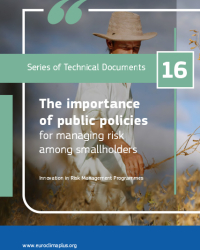 This document analyses Brazil’s main risk management instruments: the Agricultural Activity Guarantee Programme (Proagro) and the Rural Insurance Premium Subsidy Programme (PSR). The objective of analysis is to demonstrate the structure of the two programmes and describe main differences, strengths, and weaknesses. The study is based on interviews with specialists from the market, financial institutions, government, and rural producer representatives. Secondary data on the programmes are also used. The results are expressed in four complementary pillars, with proposed measures for their implementation.
This document analyses Brazil’s main risk management instruments: the Agricultural Activity Guarantee Programme (Proagro) and the Rural Insurance Premium Subsidy Programme (PSR). The objective of analysis is to demonstrate the structure of the two programmes and describe main differences, strengths, and weaknesses. The study is based on interviews with specialists from the market, financial institutions, government, and rural producer representatives. Secondary data on the programmes are also used. The results are expressed in four complementary pillars, with proposed measures for their implementation.
| Categoría: | Serie Documentos técnicos |
| Tamaño del archivo: | 5.12 MB |
| Hits: | 9165 Hits |
| Descargas: | 1308 veces |
| Título: | The importance of public policies for managing risk among smallholders |
| Autor: | Prof. Dr. Gilson Martins, Fernanda Schwantes, Daniel Lima Miquelluti |
| Año: | 2022 |
| Autor institucional: | EUROCLIMA+, GIZ |
| Formato: | PDF: 74 p. |

